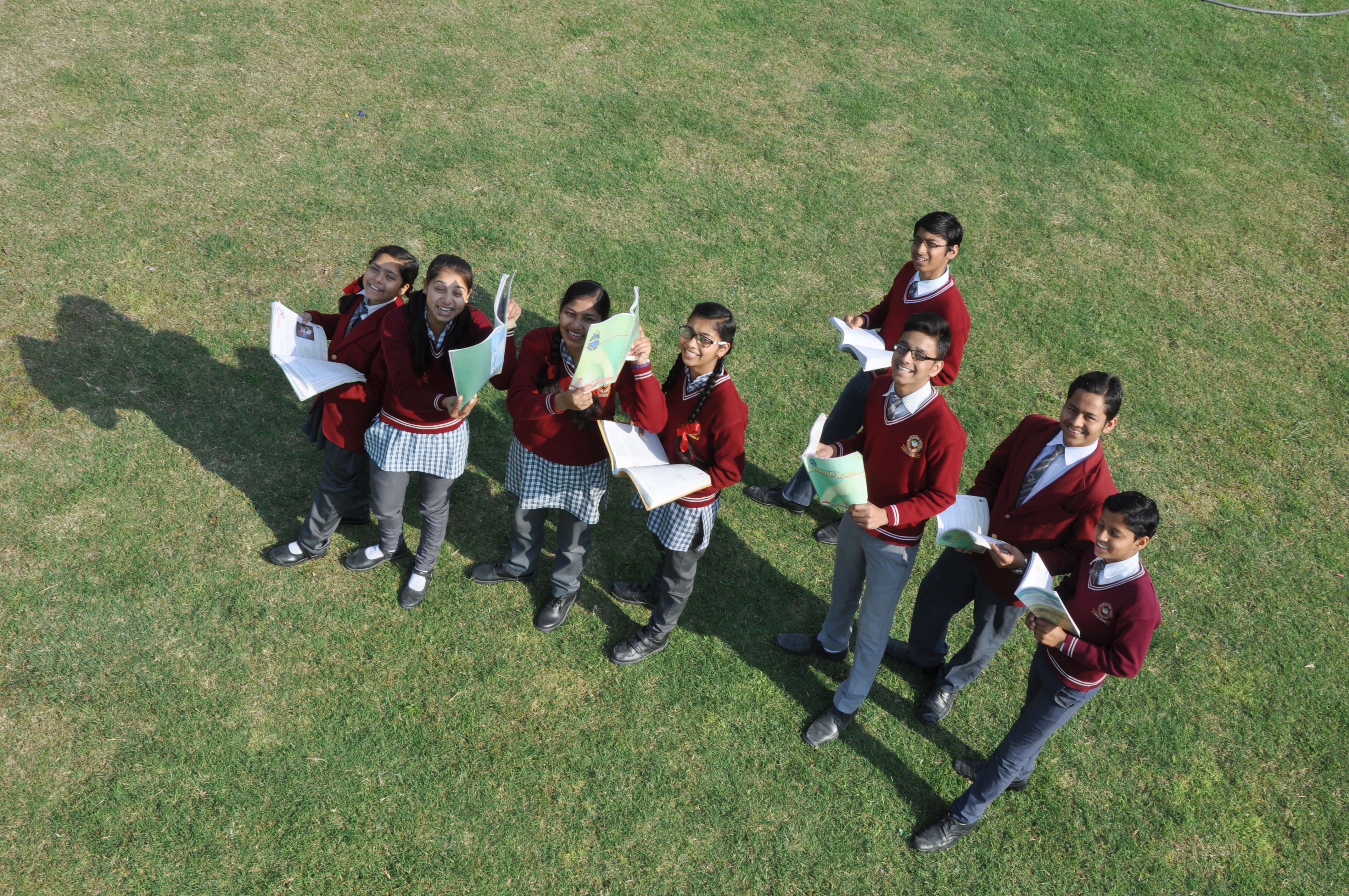English
English
Departmental Aims
Within English, pupils work on the four areas of Reading, Writing, Speaking and Listening. The fundamentals of Reading and Writing are continually re-visited through the teaching of grammar and spelling, through literary analysis, and through writing pieces which require them to use different styles and registers. There is also a strong emphasis on oral work throughout the English curriculum and pupils are taught to communicate with clarity, confidence and purpose in a variety of different forums. They are also taught and encouraged to use ICT effectively to complement their work within English.
With English Literature it is our policy to deepen each pupil’s understanding of texts by placing them in a wider context. Pupils are expected to undertake research concerning a text’s historical, generic and critical background – thereby gaining a better understanding of the moral and social issues within the novel, play or poem. We therefore encourage pupils to use the school library, local libraries, DVDs and the internet for background study, often setting them an individual topic to research and present.
The English Faculty is also keen to offer pupils a range of extra-curricular activities. There is a film club and a book club. Theatre trips are frequently organised throughout the academic year, as are trips to lectures, museums and other events. We also invite visiting theatre groups and authors. The English Society organises meetings, trips and social events, which are held every half term. Guest speakers have included published authors, academics and examiners, and the pupils have, in the past, organised a number of workshops, quizzes and dinners.
In English we therefore aim to develop creativity whilst equipping each pupil with the tools to express him or herself appropriately, accurately and confidently. We provide a positive and pleasant environment that promotes critical analysis, communication and the consideration of the views of others through the use of texts and class discussion.
Facilities
The Faculty currently consists of seven full-time and one part-time English teachers. BMS also employs members of staff to support pupils with Special Needs (mainly dyslexia).
The Faculty has its own designated area within the school, with eight classrooms, equipped with ceiling-mounted projectors, and a faculty/seminar room used for some sixth form classes.
We also have on our doorstep the BMS Resources Centre. This is run by a professional librarian who keeps the library frequently replenished with up-to-date children’s and adult fiction as well as non-fiction texts, newspapers and magazines.
A Level Curriculum
We offer both Literature, and Language & Literature at A level. 100% A*-C pass rate at A-level English is the norm with a high proportion of A*/A grades. Both courses include coursework. This element requires independent study, giving the students an opportunity to pursue a particular interest, and is worth 20%.
Students who show a suitable degree of flair, ability and interest in English Language or Literature are encouraged to consider applying to either Oxford or Cambridge. Each student is approached individually to establish whether he or she has an interest in pursuing this goal. This information is collated and passed on by the beginning of the Easter term. If interested in applying, they will be encouraged to attend and to organise English Society meetings.
English Literature A Level (Edexcel) is taught in small seminar-style groups involving lots of discussion. Work focuses on the close analysis of poetry, prose and drama from a range of authors and eras. Texts currently studied include Othello, Dr Faustus, Frankenstein, The Handmaid’s Tale, Contemporary Poetry and poetry by Christina Rossetti. Students read extensively – not only the prescribed texts but writing by critics, background information on historical context and additional texts which enhance understanding and appreciation.
English Language and Literature A Level (AQA) is a course which will helps develop students’ appreciation of literature as well as increasing their vocabulary and the ease with which they communicate. It requires a degree of sensitivity when dealing with the written or the spoken word as well as an understanding of linguistic and literary terminology. Students study fiction, such as Dracula and The Great Gatsby, as well as non-fiction, demonstrating their appreciation of the stylistic use of language by other writers. They also analyse their own writing when producing pieces for different audiences and purposes.
Co-curricular, Enrichment, Extension and Support
- English Society – organised by students with the help of staff, this involves talks, quizzes, theatre trips and an annual Faculty Dinner.
- Poetry Café – once a fortnight staff and students gather over tea and coffee to enjoy a contemporary poem.
- English Extension – once a fortnight students are invited to extend their appreciation of literature by looking at excerpts from canonical texts.
- Competitions – students are encouraged to enter competitions organised by publishers and universities.
- Theatre Trips – wherever possible we take students to see live performances of the plays they are studying.
- Paris Trip – Language and Literature students in Year 13 are taken to Paris to broaden their appreciation of the city, a city they study through their non-fiction anthology.
School Publications
- The Scribbler is a literary magazine for the students, by the students. An editorial team of students in Years 10-13 write, commission and edit creative and critical work by students. The focus is on celebrating achievement and extending opportunities for developing critical and journalistic styles of writing. The Scribbler appears at least four times a year.
- The Eagle is the School’s full colour publication, appearing twice a year. A student editor and designer commission reviews and other features. A member of the English Faculty has oversight of the production process.







 sixth form curriculum - English
sixth form curriculum - English





